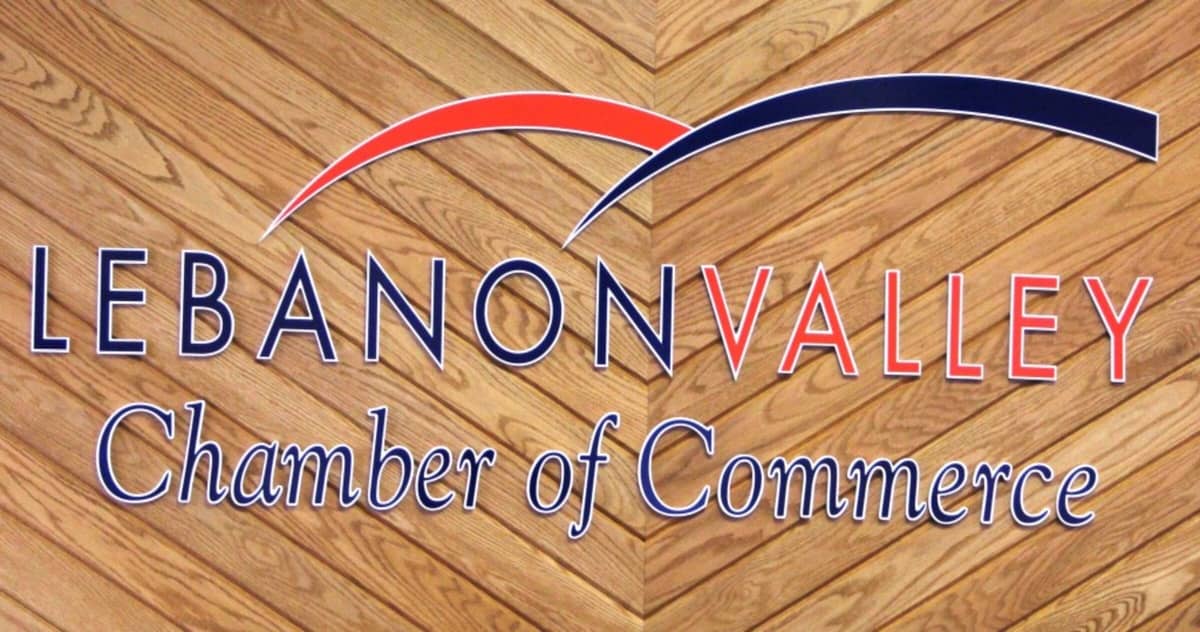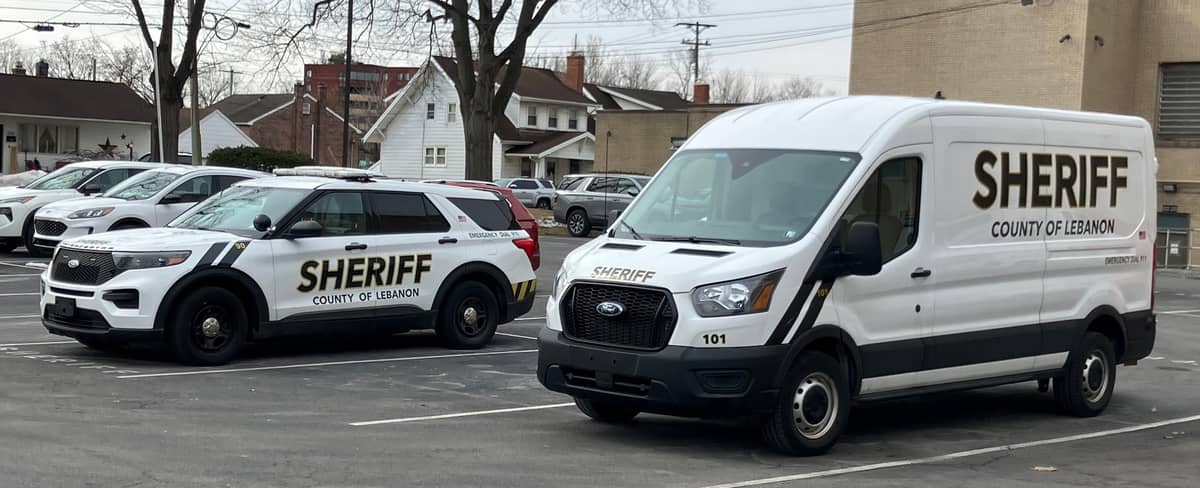Nearly 50 area business leaders attended a federal legislative update hosted by the Lebanon Valley Chamber of Commerce Friday, March 12. Panelists for the virtual meeting included U.S. Congressman Dan Meuser; Teresa Dennis, state director of U.S. Senator Bob Casey; Marta Gabriel, regional manager Lehigh Valley office of U.S. Senator Pat Toomey; and Ryan Gleeson, manager Great Lakes Region of the U.S. Chamber of Commerce.
“As we mark a number of somber milestones a little more than a year into the (COVID-19) pandemic, it is possible to say that there is hope on the horizon,” Tennis said. “Despite over 500,000 deaths, each one a tragedy, we are seeing case count decline from historic highs. We have a path out of the pandemic thanks to the authorization of three vaccines. We’re seeing a real decline in nursing home cases and deaths. Congress took a huge step in passing a COVID-19 relief bill; it was signed by the president March 11.”
Read More: Lebanon Valley Chamber of Commerce to host federal legislative update
The $1.9 trillion COVID-19 relief package, known as the American Rescue Plan, approved last week was the main focus of discussion. It allocates money for vaccines, schools, small businesses and anti-poverty programs such as an expanded child tax credit.
Gabriel said Sen. Toomey feels that most of the money in the American Rescue Plan is for future use; not for immediate use. “Upon review of the bill, Sen. Toomey found that some of the parts of the bill were for earmarks including Obama-Care subsidies for people making six-figure salaries, and $350 billion to states and cities despite record high revenues,” she said. “Very little is going to the vaccine rollout, which is so critical to get things back on track. And with the money for schools, there’s no requirement for teachers to get back into the schools to teach—that’s a really big concern for the senator. He feels instead of spending more, congress should address the biggest problems in America today — getting small businesses to reopen and getting kids back to school as quickly as possible.”
Meuser said prior to the American Rescue Plan almost $4 trillion had been approved for pandemic relief via the CARES (Coronavirus Aid, Relief, and Economic Security) Act and additional funding approved via the Economic Aid Act in December 2020. Meuser said over $1 trillion of that funding has yet to be used. “That’s why some of us including myself and Sen. Toomey felt the (American Rescue Plan) was excessive. Various parts were needed, but not in the excesses of this bill. But it’s passed now; what we have to figure out now is how do we use those funds as effectively as possible for our country and for Pennsylvania,” he said.
Read More: Lebanon Valley Chamber of Commerce to host Pennsylvania legislative update
The American Rescue Plan includes $350 billion in funding to the states, and Pennsylvania will receive about $15 billion of that funding. Meuser said the state currently has nearly a $3.5 billion state and local revenue shortfall. He pointed out that California currently has a revenue surplus and yet that state is receiving three times the amount allocated to Pennsylvania. The formula for funding was based upon population and unemployment.
Lebanon County is slated to receive $18 million of Pennsylvania’s funding. Unlike the CARES Act funding, Meuser said funds from the American Rescue Plan will be distributed directly to the county, and the county should receive funds in under 60 days. “The flexibility for what funds can be used for is pretty good — responding to COVID-19, emergency costs, lost revenue and addressing negative economic impacts of COVID-19. I think Lebanon County used the funds from the last time around pretty effectively,” he said.
The plan also includes funding for schools, but Meuser said there’s no requirement to get students back into schools. “We’re about recovery, rapid response testing, vaccine distribution, getting kids back to school and targeted funding where it’s needed such as restaurants. This act does include that but less than 1%, $14 billion, is intended to go for vaccine distribution,” he said.
The act does include about $25 billion for the restaurant revitalization fund, which he said will provide economic assistance to restaurants. There’s also $15 for a shuttered venue fund for museums, theaters, concerts and other venues shuttered through COVID restrictions; and an additional $15 billion in funding for EIDL (Economic Injury Disaster Loans) program. It also authorizes $7.25 billion of additional funding for the Paycheck Protection Program (PPP) but does not extend the program past its March 31 end date. Dennis said non-profits and digital news outlets are also eligible for PPP funding and a community navigator program will be launched to help small businesses to connect with the Small Business Administration, which administers the PPP program.
Meuser said another bill that’s in the works is anticipated to extend the PPP program until May 31. “That should be helpful to our small businesses, which are the backbone of the economy,” he said, “PPP has worked out very well for our small businesses—about $20 billion has come into Pennsylvania, and (businesses in) my district have received over $1 billion. The average amount of the loan is $115,000, so it’s right in line with what this program was supposed to do — help small businesses.”
Gleeson said one item that wasn’t included in the American Rescue Plan was liability protection for businesses. “We have seen businesses go above and beyond to keep their businesses safe with Plexiglas and PPE. These businesses shouldn’t be targeted for frivolous lawsuits and should be granted immunity for coronavirus lawsuits, not forever, but for a certain period of time,” he explained.
He said the US Chamber was happy to see that the $15 minimum wage was pulled from the act. “It would have been crushing to small businesses,” Gleeson said. “We’re hoping that as the country moves forward and gets out of a recovery phase and into a rebuilding phase, congress can work together on issues such as immigration and workforce development. As a result of the pandemic, some jobs won’t be coming back, but there will be new industries. We want to make sure that workers have the skills necessary to fill these new industry jobs. We also need to work on infrastructure improvements — bridges, tunnels, roads, trains, broadband access.”
Gleeson said that the chamber has launched the “Build by the Fourth of July” campaign, urging Congress to enact a fiscally and environmentally responsible infrastructure package by the Fourth of July.
Regarding the vaccine, Meuser said distribution has been a challenge and a frustration for many people, “but people have been far more patient that I would have imagined”. About 1.6 million residents have received both doses of the vaccine, and 1.2 million have received the first dose. Dennis said since Jan. 20 the pace of vaccinations has more than doubled with an average of 2 million doses administered in the US each day. “The vaccine is the best tool we have to help bring this pandemic under control so that Pennsylvania and the nation can get back on its feet,” she said. “The efforts to vaccinate teachers will help children safely return to in-person learning Many of us are eager to see our friends and family again, and the vaccine will help us reunite safely.”
Questions about this story? Suggestions for a future LebTown article? Reach our newsroom using this contact form and we’ll do our best to get back to you.

Join our community of local news champions.
Cancel anytime.
Monthly Subscription
🌟 Annual Subscription
- Still no paywall!
- Fewer ads
- Exclusive events and emails
- All monthly benefits
- Most popular option
- Make a bigger impact
Already a member? Log in here to hide these messages
Local news is disappearing across America, but not in Lebanon County. Help keep it that way by supporting LebTown’s independent reporting. Your monthly or annual membership directly funds the coverage you value, or make a one-time contribution to power our newsroom. Cancel anytime.
























